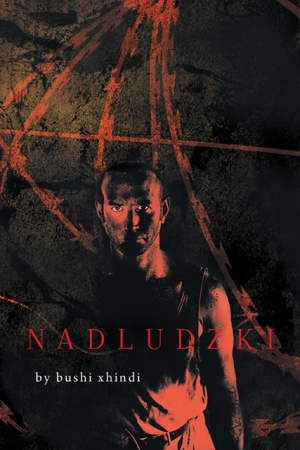Nadludzki
Xhindi’s novel is exciting and engaging as it considers the “what ifs” of the World War II era.
Nadludzki, by Bushi Xhindi, is exciting historical fiction that follows the life of Ben Zolbarschy, a Jew living in the middle of the war with Nazi Germany. The book engages in a thrilling narrative that explores a kind of alternate reality, one in which the Jewish people have a savior, a hero, determined to liberate every last one of them.
At his birth, Ben is called Nadludzki by the doctor, which means “superhuman” in Polish. This prophetic moniker comes to define his life, as Ben grows very quickly, becoming larger and more mature than his peers. A strong moral compass, learned early from his mother, guides him through conflict in his early life and helps him when his parents are taken to a Nazi camp. This launches Ben’s personal war against the Nazis and his campaign to rescue his parents. He makes many friends along the way, learning of more and more people who need to be saved, until Ben is not satisfied with just saving his parents anymore. He must save all Jews from their persecutors.
The book immediately captures attention with a prologue that describes a baby boy, larger than any other, who must be much more than he seems. The narration, however, tends to tell more than it shows, with a majority of the text a summary of events. This makes the pacing feel simultaneously slow and fast—a lot can happen in a few sentences, as the details are blurred and summarized, but there is a general feeling of nothing occurring, as there are very few actual descriptions of events. Despite this, the story itself manages to stay engaging with its exciting plot. Ben’s journey is full of action, intrigue, and betrayal, and the novel manages to make an emotional connection.
Many of the characters lack depth, and the only character that really comes through is Ben. Scattered sections pull from Ben’s point of view to give insight into other characters, and though this shift is often jarring, it does help make some of the other characters more real. The events take place mostly chronologically, but oftentimes events are skipped over and not mentioned until they become relevant in future events, and seem almost an afterthought. This detracts from the credibility of the storyline.
Despite some narrative setbacks, Xhindi’s novel is exciting and engaging as it considers the “what ifs” of the World War II era. It will interest anyone with an inclination toward history and a deep passion for justice.
Reviewed by
Emily Casuccio
Disclosure: This article is not an endorsement, but a review. The publisher of this book provided free copies of the book and paid a small fee to have their book reviewed by a professional reviewer. Foreword Reviews and Clarion Reviews make no guarantee that the publisher will receive a positive review. Foreword Magazine, Inc. is disclosing this in accordance with the Federal Trade Commission’s 16 CFR, Part 255.

